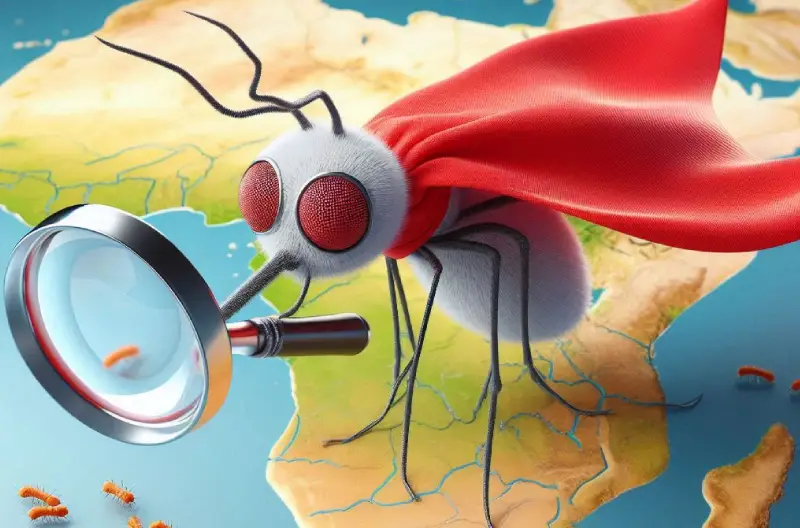- Home
- Health Care
- Combating Malaria in Africa: Prevention and Treatment Strategies

Combating Malaria in Africa: Prevention and Treatment Strategies
Malaria remains one of the most significant public health challenges in Africa, accounting for a substantial percentage of disease burden and mortality. Effective prevention and treatment strategies are crucial to combat this deadly disease and improve public health outcomes. This blog post explores comprehensive methods to prevent and treat malaria in Africa.
Understanding Malaria
What is Malaria?
Malaria is a life-threatening disease caused by parasites of the Plasmodium species, transmitted to humans through the bites of infected female Anopheles mosquitoes. The most common species causing malaria in Nigeria is Plasmodium falciparum, known for its severe health implications.
Symptoms of Malaria
Early detection of malaria is crucial for effective treatment. Common symptoms include:
- High fever
- Chills and sweating
- Headaches
- Nausea and vomiting
- Muscle and joint pain
- Fatigue
If not promptly treated, malaria can lead to severe complications such as anemia, cerebral malaria, and organ failure.
Prevention Strategies
1. Use of Insecticide-Treated Nets (ITNs)
Sleeping under insecticide-treated nets is one of the most effective ways to prevent mosquito bites.
Action Points:
- Distribute ITNs widely, especially in rural areas.
- Educate communities on the importance of using nets consistently.
- Replace nets periodically to ensure continued efficacy.
2. Indoor Residual Spraying (IRS)
Indoor residual spraying involves applying insecticides on the walls and ceilings of homes to kill mosquitoes that come into contact with treated surfaces.
Action Points:
- Implement IRS programs in high-risk areas.
- Conduct regular spraying campaigns, particularly before peak malaria seasons.
- Train local health workers on safe and effective spraying techniques.
3. Environmental Management
Reducing mosquito breeding sites through environmental management can significantly decrease malaria transmission.
Action Points:
- Eliminate standing water in and around homes.
- Improve drainage systems to prevent water accumulation.
- Promote the use of larvicides in water bodies that cannot be drained.
4. Use of Antimalarial Drugs for Prevention
Chemoprophylaxis involves the use of antimalarial drugs to prevent infection, particularly in high-risk groups such as pregnant women and travelers.
Action Points:
- Administer intermittent preventive treatment (IPT) to pregnant women and infants.
- Provide prophylactic drugs to travelers and individuals in high-transmission areas.
- Ensure adherence to medication regimens through community health education.
Treatment Strategies
1. Prompt Diagnosis and Treatment
Early diagnosis and treatment are critical to managing malaria effectively and preventing complications.
Action Points:
- Increase access to diagnostic tools such as rapid diagnostic tests (RDTs) and microscopy.
- Train healthcare providers to recognize and diagnose malaria promptly.
- Educate communities on the importance of seeking medical attention at the first sign of symptoms.
2. Use of Artemisinin-Based Combination Therapies (ACTs)
ACTs are the recommended first-line treatment for uncomplicated malaria.
Action Points:
- Ensure the availability and affordability of ACTs in healthcare facilities.
- Monitor drug efficacy and resistance patterns.
- Promote adherence to treatment regimens through patient education.
3. Management of Severe Malaria
Severe malaria requires specialized care, including intravenous medications and supportive therapies.
Action Points:
- Equip hospitals with the necessary medications and equipment for managing severe cases.
- Train healthcare workers in the management of severe malaria and complications.
- Establish referral systems for the timely transfer of patients to higher-level care facilities.
Community Involvement and Education
1. Community Health Education
Raising awareness about malaria prevention and treatment is essential for community engagement.
Action Points:
- Conduct community education sessions on malaria symptoms, prevention, and treatment.
- Use mass media campaigns to reach a wider audience.
- Collaborate with local leaders and influencers to promote malaria awareness.
2. Strengthening Health Systems
Robust health systems are vital for effective malaria control.
Action Points:
- Improve healthcare infrastructure and access in rural and underserved areas.
- Train healthcare workers on the latest malaria guidelines and best practices.
- Foster partnerships with international organizations and NGOs to support malaria initiatives.
Conclusion
Combating malaria in Africa requires a multifaceted approach that includes prevention, prompt treatment, community education, and robust health systems. By implementing these strategies, we can reduce the incidence of malaria, save lives, and improve the overall health and well-being of Africans.
Call to Action
Join the fight against malaria by sharing this information, supporting local health initiatives, and advocating for increased funding and resources for malaria control programs. Together, we can make a significant impact in the battle against malaria in Africa.